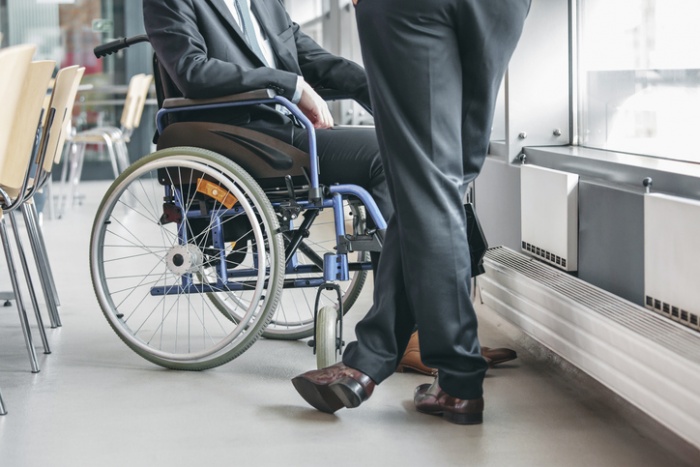The protection sector needs to do more to support the ongoing needs of younger people who suddenly find themselves permanently disabled.
This is according to Pippa Keefe, who was appointed commercial director at Legal & General last month and who took part in Protection Review’s latest Protect X Live event yesterday.
Relating her personal experience, Keefe revealed a family member had been affected by a freak accident leaving him permanently disabled and impacting his mind, body and personality.
While receiving “massive” amounts of care straight away at hospital, she added once a patient is signed out of hospital the level of care “really deteriorates”.
“We have a cultural expectation that all the help we need will just appear at that point,” Keefe continued.
“You assume that occupational health, physio, speech therapy and everything else will just be there waiting. But it’s not. And for me, it’s really scary.
“If you don’t make a full recovery, the removal of care can feel like a very sudden drop off.
“When you’re discharged from hospital you’re left in no man’s land so your family has to manage that situation entirely on their own.”
Keefe maintained that a key issues is that the UK lacks a single national care approach – meaning people face a postcode lottery, dependant on their local authority and NHS Trust.
“They decide how they fund care in your area and what happens to you,” Keefe said.
“There are lots of different charities but you have to go and find them. And then you have to hope that the one that is useful to you is somewhere nearby. And there’s no website that tells you how to fit all of this together.”
Additionally, Keefe pointed to the mental health challenges for loved ones.
“It’s so tough on the person that has the accident but it’s also tough on the people who love them and care for them. As well as the practical support, you need lots of emotional support.
“And if you’re the carer, chances are you’re suddenly the sole source of income so you’ve got to fit all of this in around work too.
“Luckily this wasn’t the case for us. James had group income protection which has made a huge difference.”
Keefe concluded by leaving a challenge for the protection sector.
She said that having the right insurance and getting the claim payment is vital as it reduces financial worry.
“But we have got to do more than that,” Keefe said.
“We’ve got to make sure that we’re offering all of the ongoing help that we can. And we’ve also got to make sure that its easy and possible for customers to find and take up.”
And this is particularly important as the people benefitting from critical illness and income protection tend to be younger, Keefe pointed out.
“When you’re dealing with age-related challenges, you often see them coming. You know what might happen and what to expect. But when you’re younger and an accident or illness hits you, it’s blindsiding.
“Everything instantly is turned upside down. It creates complexity I’d never have imagined until my family had to start dealing with them.
“That’s my challenge to us an industry. Of course it’s not something that we can solve on our own, but we can do a lot more to help.
“How can we extend our version of protect to help people live those upside down lives?”
